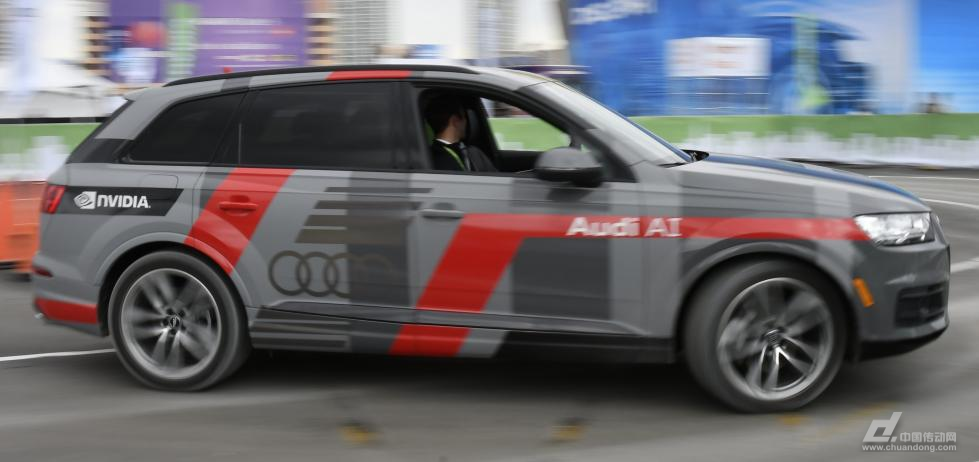
According to the Wall Street Journal, while driverless cars continue to capture imaginations, their path to commercial success remains uncertain. Despite this, companies in the autonomous vehicle space are pushing forward, striving to bring these innovations from concept to reality.
A year ago, Glen DeVos, CTO of automotive tech company Aptiv, showcased the company’s progress at CES by using self-driving SUVs with no human drivers on board, demonstrating how the technology could handle complex traffic scenarios. This year, he aimed to take things a step further, showing how the technology can be applied in real-world situations.
At this week's CES, Aptiv—formerly Delphi Automotive—is partnering with ride-hailing startup Lyft to offer free shuttle services between the convention center and major hotels. The initiative is designed to highlight how Aptiv’s technology could support future driverless car services.
"This year, we’re shifting from showcasing technology to demonstrating real applications," said DeVos. "We're not just talking about what the technology can do—we're showing how it can be used in everyday life."
The growing collaboration between Silicon Valley and Detroit has transformed CES into a major event for the automotive industry, rivaling the North American International Auto Show. According to the show organizers, the automotive tech exhibition area has grown by nearly 25% this year, with over 172 companies participating—an increase of 19% compared to last year.
Industry leaders like Renault-Nissan-Mitsubishi Alliance CEO Carlos Ghosn and Ford’s new CEO Jim Hackett will make appearances at this year’s event. Many top automotive component manufacturers are also present, eager to showcase their latest advancements in autonomous driving technology.
Despite the excitement around self-driving cars, their commercial viability remains unclear. Regulatory challenges and technical limitations still hinder widespread adoption. So far, most efforts have been limited to small-scale testing of research vehicles.
This year, however, several companies are aiming to move beyond testing. They plan to deploy fleets of autonomous vehicles on city streets, collect real-world data, and study user reactions. For example, Waymo, Google’s parent company, has launched a taxi service in Phoenix, allowing non-employees to use its self-driving cars in the near future.
In recent years, CES has become a key platform for automakers and tech firms to demonstrate practical autonomous driving solutions. For CES 2018, industry experts believe the focus will be on turning futuristic ideas into profitable businesses.
"It's no longer surprising to see a self-driving car on the road," said Christopher Heiser, CEO of RenovoAuto, a provider of autonomous software systems. "Now people are thinking about how to turn this technology into a business."
Last year, Nvidia displayed an autonomous Audi in a parking lot. This year, the company is taking a different approach. According to Danny Shapiro, senior director of automotive business at Nvidia, the focus is shifting from demonstrations to real business discussions.
"Most of our meetings are now held in executive conference rooms because every car manufacturer's leadership team is here at CES," he said. "We're moving past showing what our technology can do and into actual business conversations."
On Tuesday, Ford CEO Jim Hackett will share his vision for deploying autonomous test vehicles. Based on recent statements from Ford executives, the company plans to expand its testing to various commercial applications, including transportation services.
Aptiv plans to bring 10 test vehicles to Las Vegas, with plans to increase that number to 30 by the end of the month. This is part of a broader strategy to scale up to 200 test vehicles across Boston, Pittsburgh, Singapore, and Silicon Valley.
During a recent test drive near Caesars Palace Hotel, an Aptiv-modified BMW 5 Series operated smoothly. The car emitted digital sounds when changing lanes and had a backseat screen that displayed the route. These features are intended to make the experience more familiar for passengers. While the car still includes a human operator ready to take control if needed, Aptiv aims to remove them entirely by the first quarter of next year.
"Autonomous driving is cool, but you have to start running it," DeVos added. "You can't just think about it and accumulate miles—you have to figure out how to make it commercially viable."
delco autoparts,advance auto parts,auto parts stores,
YIWU JINGHONG AUTO PARTS CO.,LTD , https://en.jhauto.ru